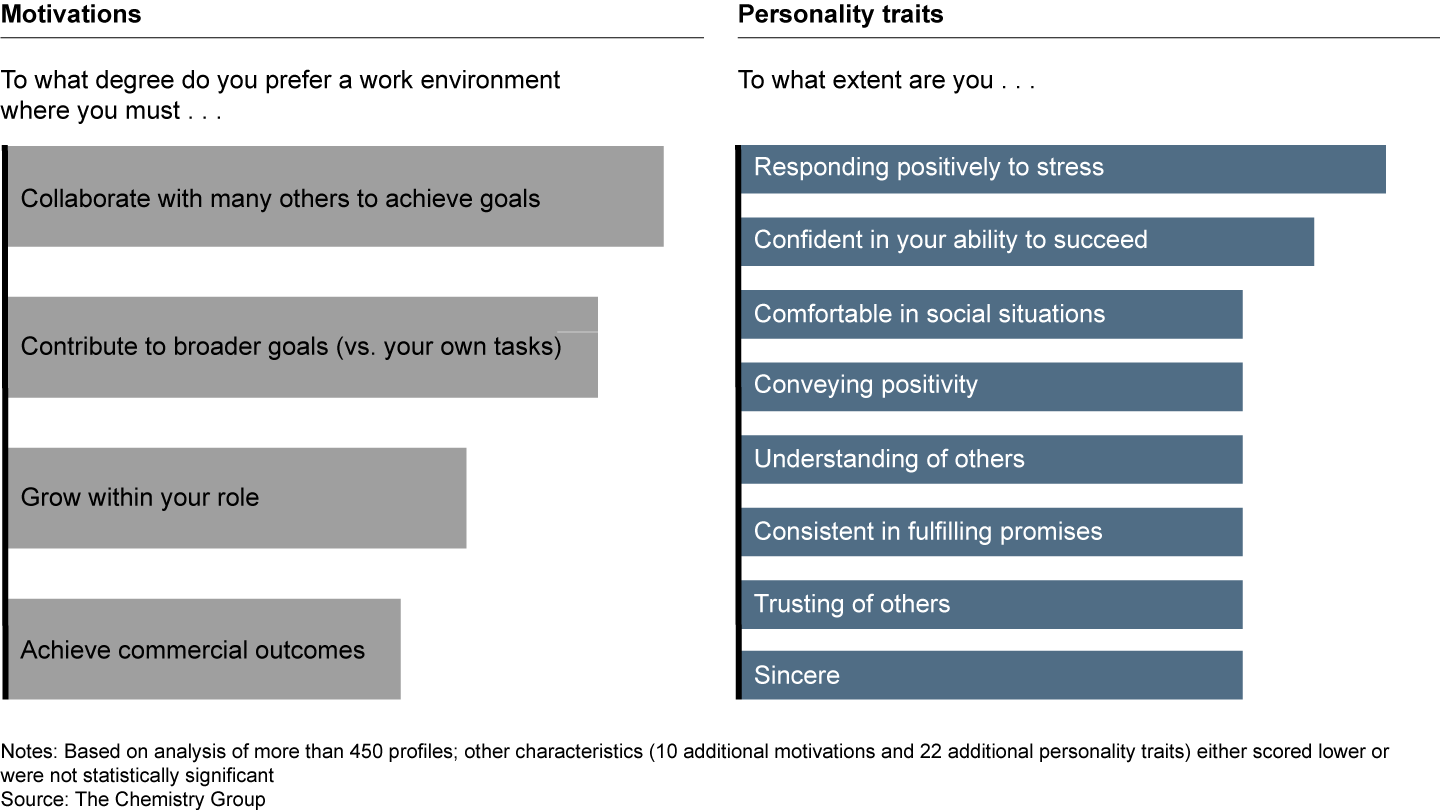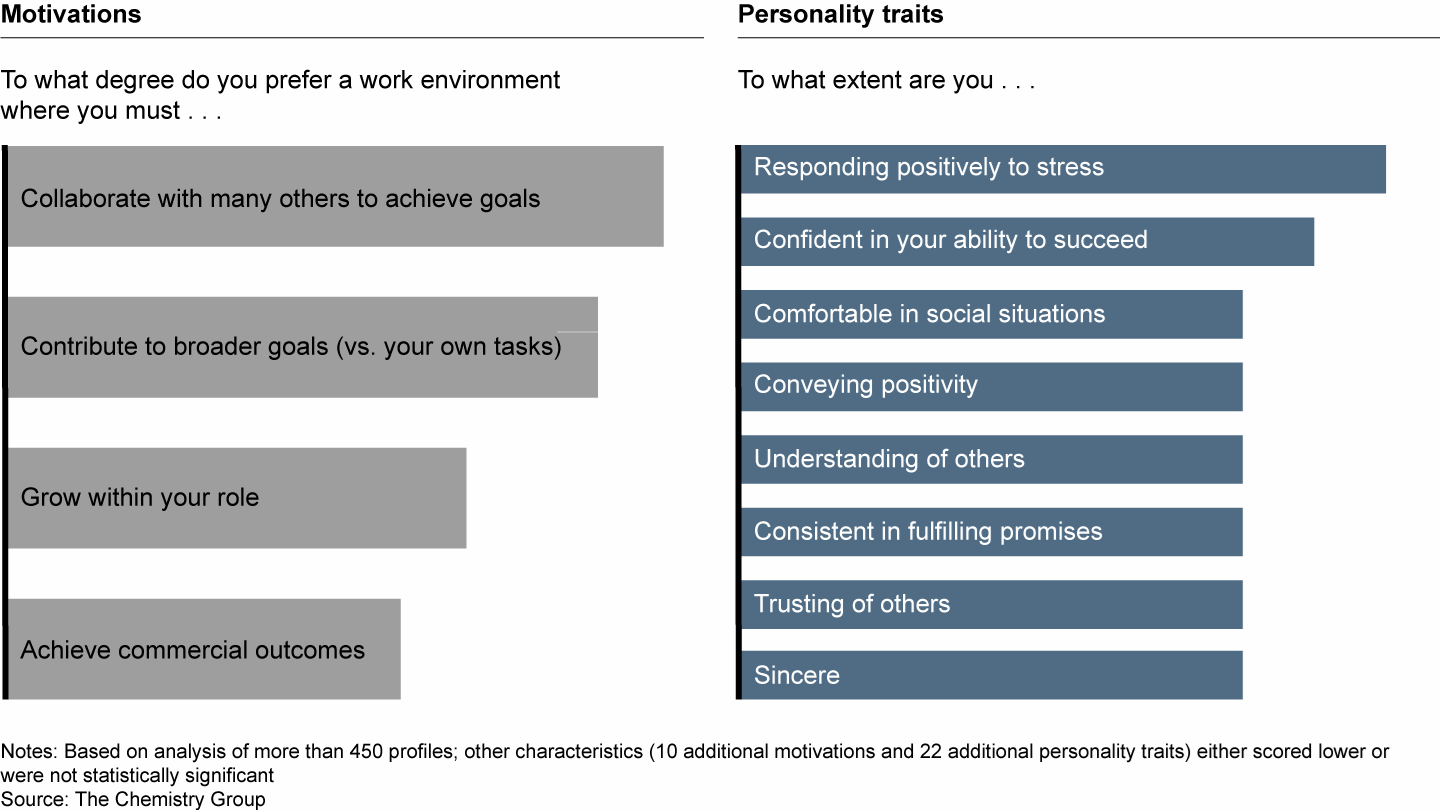記事

Customer success manager is one of the fastest-growing jobs in technology, with 80% growth in job postings from 2017 to 2018, according to LinkedIn. Many companies have aggressive hiring plans to fill their CSM ranks but struggle to find talent.
Bain surveyed 70 customer success leaders, asking them about the backgrounds of their best CSMs. We also partnered with The Chemistry Group, which has conducted psychological tests of many CSMs as part of hiring processes, to better understand the motivations and personality traits of successful CSM hires (see Figure 1).
The most successful CSM hires share common motivations and personality traits


Great CSMs have a wide range of prior experience. People with backgrounds in sales, support, professional services, technical presales, consulting, project management, and even product and marketing roles have made successful CSMs. Sales, support and services are the most common backgrounds, but they aren’t the only pools to look in. (The very best are often those with experience in more than one of these three functions, but since such people can be rare, that may not help in meeting ambitious hiring targets.)
But what most differentiates the best CSMs isn’t their background, but what kind of people they are―what makes them tick, and what kind of environment they thrive in.
Leaders routinely describe their best people as some combination of empathetic, customer oriented and proactive. Research into CSM profiles supports this. Great CSMs tend to rate themselves highly on their ability to react positively to stress and on their own self-confidence. They also score highly on traits such as comfort in social situations, sincerity, keeping their promises, sensitivity and positivity. The picture emerges of someone who likes working with people, gets things done with a smile, and stays calm and self-assured in complex, chaotic situations―an apt description of what the human side of a complex software deployment often feels like.
If you look at what kind of work environment motivates them, it’s one where they have to collaborate with others, where they contribute to common goals (not just their own tasks) and where they are expected to grow within the role. To a lesser extent, great CSMs are also motivated by commercial outcomes, although not to the same degree as salespeople—and great CSMs are generally less competitive. Again, this describes well the environment of getting software installed, used, valued and renewed.
Beyond the profile, some level of technical aptitude is often a threshold requirement. This is particularly true in certain categories of software, where it’s hard to ensure customers are getting outcomes if you don’t understand the complexities of the product and the customer IT environment. You can’t always hire any empathetic, proactive person and expect they can do the job. Either some experience in the software business, or a high aptitude and willingness to learn the technical aspects, is necessary.
The good news is you can reliably test for many of these psychological traits and motivations, and screen for technical ability as well—which can widen your hiring funnel to many more people, with more diverse backgrounds, than you may be considering now.